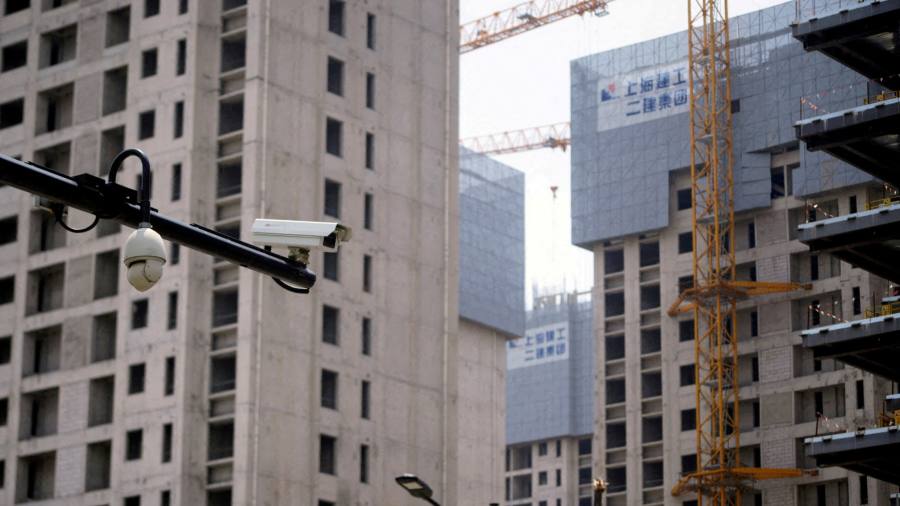Receive free Chinese business & finance updates
We’ll send you a myFT Daily Digest email rounding up the latest Chinese business & finance news every morning.
As Chinese companies warily emerge from three years of Covid-19 controls and regulatory crackdowns, there are concerns that another big problem looms — a balance-sheet recession akin to what Japan went through after its boom.
The argument goes that China’s situation in 2023 somewhat resembles Japan’s after its 1980s real estate bubble imploded. China’s property market has ground to a halt after a long debt-fuelled boom and few expect it to bounce back soon. Consumers are scarred by the pandemic controls and distrustful of the real estate market, so they do not want to spend — at least not on new homes.
Private businesses, equally battered after the pandemic and worried about low demand for their products, do not want to invest. Banks, meanwhile, are laden with property and related assets as well as loans to another stricken sector — local government finance vehicles, which have ploughed money into low-return infrastructure projects.
The stage is set, some say, for a Japan-style balance-sheet recession as everyone from companies to individuals concentrates on paying down debt at the same time, sending economic growth into a downward spiral. The argument is compelling but the situation may be more nuanced than that, according to a new study by French bank Natixis of 3,000 listed Chinese companies’ balance sheets.
As in Japan, Chinese mortgages and company borrowings have been subdued over the past couple of years despite relatively low interest rates, indicating low demand for debt, Natixis analyst Gary Ng says. But home prices in China have not crashed in the same way that they did in Japan, instead edging slowly down in recent months.
The financial health of Chinese companies overall is also relatively stable. Their main problem is that the sluggish economy is hurting revenue generation, lowering their ability to repay debt. The ratio of Chinese companies’ earnings before interest, taxation, depreciation and amortisation to interest expense is about six times, or half the global average, according to Natixis.
That is the overall picture. But within China’s corporate sector some segments, notably private property groups and local state-owned enterprises, are doing far worse. In fact, they may already be suffering from what Ng calls “balance-sheet deterioration”.
The ability of local government state-owned enterprises and private companies including real estate groups to repay their debt is relatively low, at an ebitda to interest expense ratio of less than four times. By contrast, non-property private sector companies and central government state-owned enterprises have an average ebitda to interest expense ratio of more than six times. “Early signs of balance-sheet recession and the stress is very concentrated on private real estate developers,” Ng says.
A separate study of more than 6,000 annual reports from onshore and offshore non-financial Chinese companies by Gavekal China strategist Thomas Gatley underlines the challenges. On average, listed developers have deleveraged from a peak of 1.2 times debt to equity in 2018 to less than 1 times now. Yet while their debt is about Rmb5.7tn ($790bn), their non-debt liabilities — from presales of apartments and accounts payable — is more than three times this amount.
“With housing past its structural peak, it may be difficult for firms to grow out of this pile of liabilities, or raise equity to deleverage,” Gavekal says.
Indeed, the shocks of recent years have increased the number of “zombie companies”, those that generate insufficient earnings to cover their interest payments. Zombies have risen to 9 per cent of listed businesses, or about three times more than in 2018, Gavekal says. Many private real estate groups are in this category.
Some areas of China’s economy are still doing well, such as capital goods and tech hardware producers. These are sectors that Beijing favours as part of its geopolitical rivalry with the US. But on their own, they are not big enough to offset the depressed property market and weakened domestic consumption.
So, while China is some way off from Japan’s situation in the 1990s, policymakers may need to act quickly to give an incentive to the more productive areas of the economy. That means helping the private sector as a whole, including industries that do not necessarily fit Beijing’s strategic objectives such as ecommerce. “China should probably consider giving more room for the private economy to grow — that will reduce its chance of following what happened in Japan in the late 1980s,” Ng says.
Read the full article here




